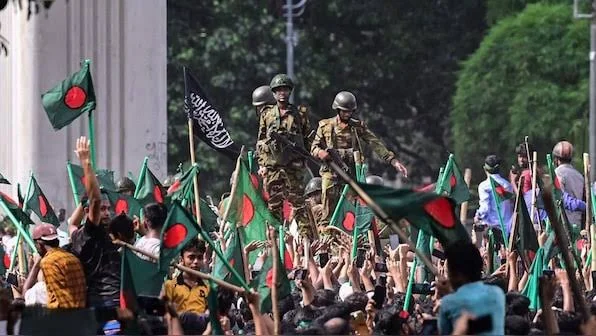Islamabad, February 12, 2025 – As Bangladesh enters the fourth day of Operation Devil Hunt, authorities report significant developments, with over 2,258 arrests made across the country as of February 11. The operation, launched to curb civil unrest and ensure public safety, has expanded to involve a broad range of security forces, including the Bangladesh Army, Navy, Air Force, Border Guard Bangladesh (BGB), and police from multiple divisions.
What is Operation Devil Hunt?
Operation Devil Hunt is a nationwide security initiative launched by the interim government of Bangladesh on February 9, 2025. The operation aims to detain individuals who threaten the nation’s stability and violate its laws, referred to as “devils” by the authorities. The initiative was prompted by a violent attack on students and civilians in Gazipur, leading to widespread unrest. Home Affairs Adviser Lieutenant General (Retd) Md Jahangir Alam Chowdhury has emphasized that the operation will continue until all such elements are brought to justice.
Arrests in Gazipur
On the third day of the operation, 81 individuals were arrested in Gazipur, a city in central Bangladesh, according to reports from the Gazipur Metropolitan Police (GMP) and district police. Of the 81 arrests, 69 were made by the GMP, while 12 individuals were apprehended by police from five district stations. With these arrests, the total number of people arrested in Gazipur over the past three days has reached 246.
The arrests are part of a broader nationwide effort to target criminal activities following recent unrest. Notably, tensions escalated after an attack on anti-discrimination students at the residence of former Minister for Liberation War Affairs, Advocate AKM Mozammel Haque, in the Dhirashram area of Gazipur. The assault left 15 students injured, and the following day, Abdullah Mohit, coordinator of the Anti-Discrimination Movement in Gazipur, filed a case at the Gazipur Sadar Police Station, naming 239 individuals and accusing an additional 200 to 300 unidentified suspects.
Nationwide Impact
The total arrests across Bangladesh over the first three days of the operation have reached 2,258, with 607 individuals detained on February 10 alone. This includes arrests made in response to violent acts in Gazipur, a known political stronghold of the Awami League, which saw clashes between activists and students.
As part of the operation’s third-day efforts, security forces also recovered a cache of weapons, including two pistols, a shutter gun, a pipe gun, knives, machetes, and ammunition. This seizure marks the intensification of efforts to dismantle illegal arms networks in the country.
Also See: Assam: Guwahati HC Verdict Paves Way for Deportation of 25,000 Bangladeshis
Government’s Stance
Home Affairs Adviser Md Jahangir Alam Chowdhury stated that the operation would continue until all individuals responsible for destabilizing the country are brought to justice. He emphasized that the government’s goal is to restore peace and order by targeting individuals deemed “criminals,” including anarchists.
The operation’s broad scope has been lauded for its involvement of various security agencies, and it has garnered significant attention following Friday night’s attack in Gazipur. The government has also assured the public that supplies of essential commodities will remain stable throughout the Ramadan period, despite the presence of price hikes in some markets, which authorities have attributed to unscrupulous traders.
Operation Devil Hunt remains active, with law enforcement continuing their efforts to dismantle illegal activities across the nation. The operation’s full impact remains to be seen as it progresses into its fourth day.
This news is sourced from The Dhaka Tribune and is intended for informational purposes only.




![Ukrainian and Russian flags with soldier silhouettes representing ongoing conflict. [Image via Atlantic Council].](https://southasiatimes.org/wp-content/uploads/2026/02/2022-02-09T000000Z_1319661209_MT1NURPHO000HXCNME_RTRMADP_3_UKRAINE-CONFLICT-STOCK-PICTURES-scaled-e1661353077377.jpg)

